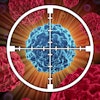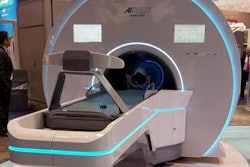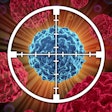
A radiation therapy (RT) treatment that combines radiation with chemotherapy can improve survival rates in elderly brain cancer patients, according to research presented on October 17 at the annual meeting of the Royal Australian and New Zealand College of Radiologists (RANZCR) in Auckland.
The findings show that patients over 65 years of age who are functioning well following surgery may respond well to the same treatment used in younger patients -- known as the Stupp protocol -- instead of a more conservative approach.
The Stupp protocol is a combination of radiation therapy and chemotherapy. Due to its intensity, it is typically only used in younger patients, said presenter Dr. Brendan Liu of Crown Princess Mary Cancer Centre in Westmead, Australia.
"We found that when stratified for performance status, elderly patients had similar survival outcomes compared with the younger cohort, without a significant increase in side effects or impact on quality of life," he said in a statement released by RANZCR. "This suggests that elderly patients who managed well following the initial diagnosis and surgical procedure may benefit from a longer course of combined radiation therapy and concomitant chemotherapy, which can provide better prognosis and survival outcomes for the patient."



















